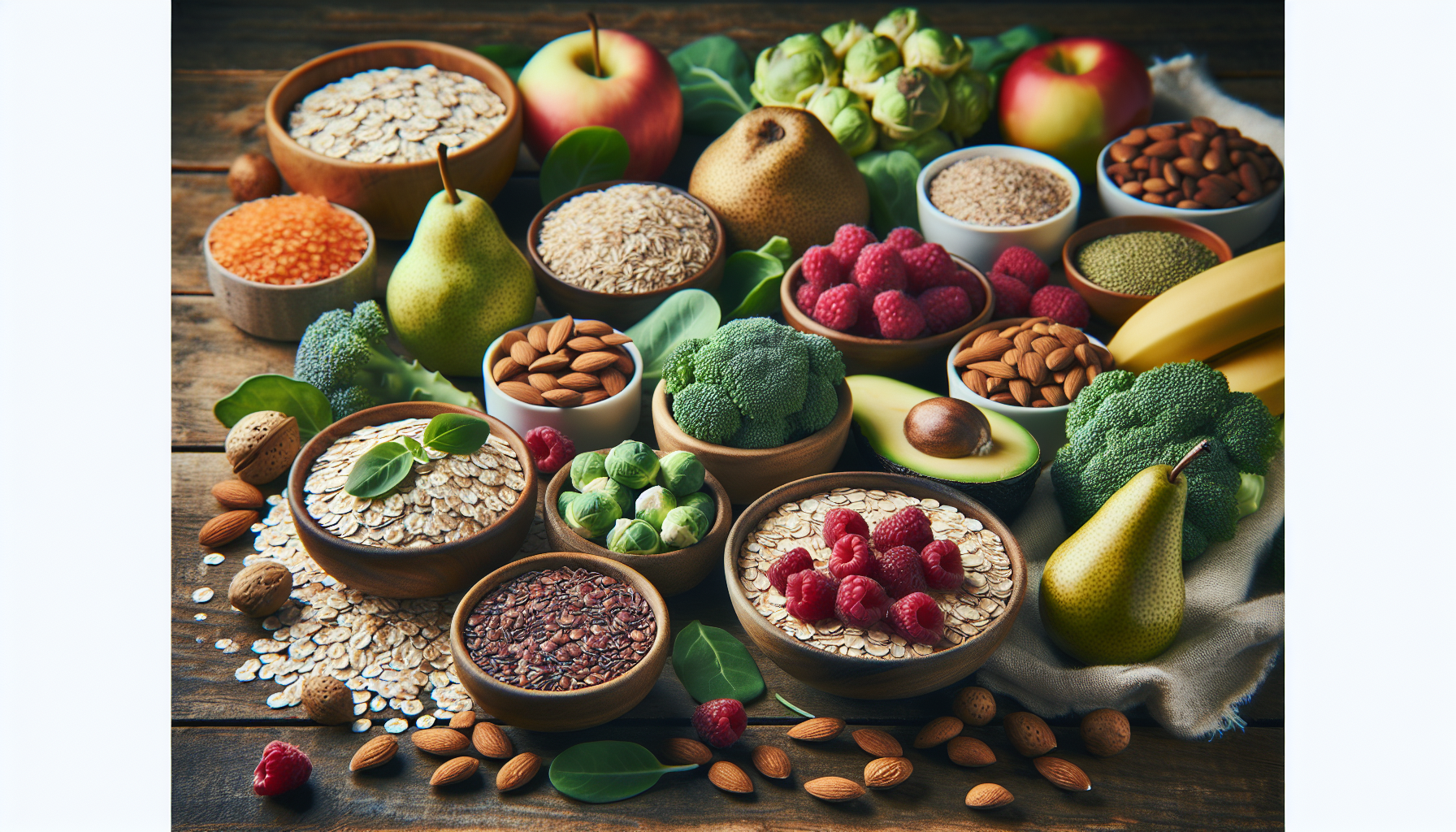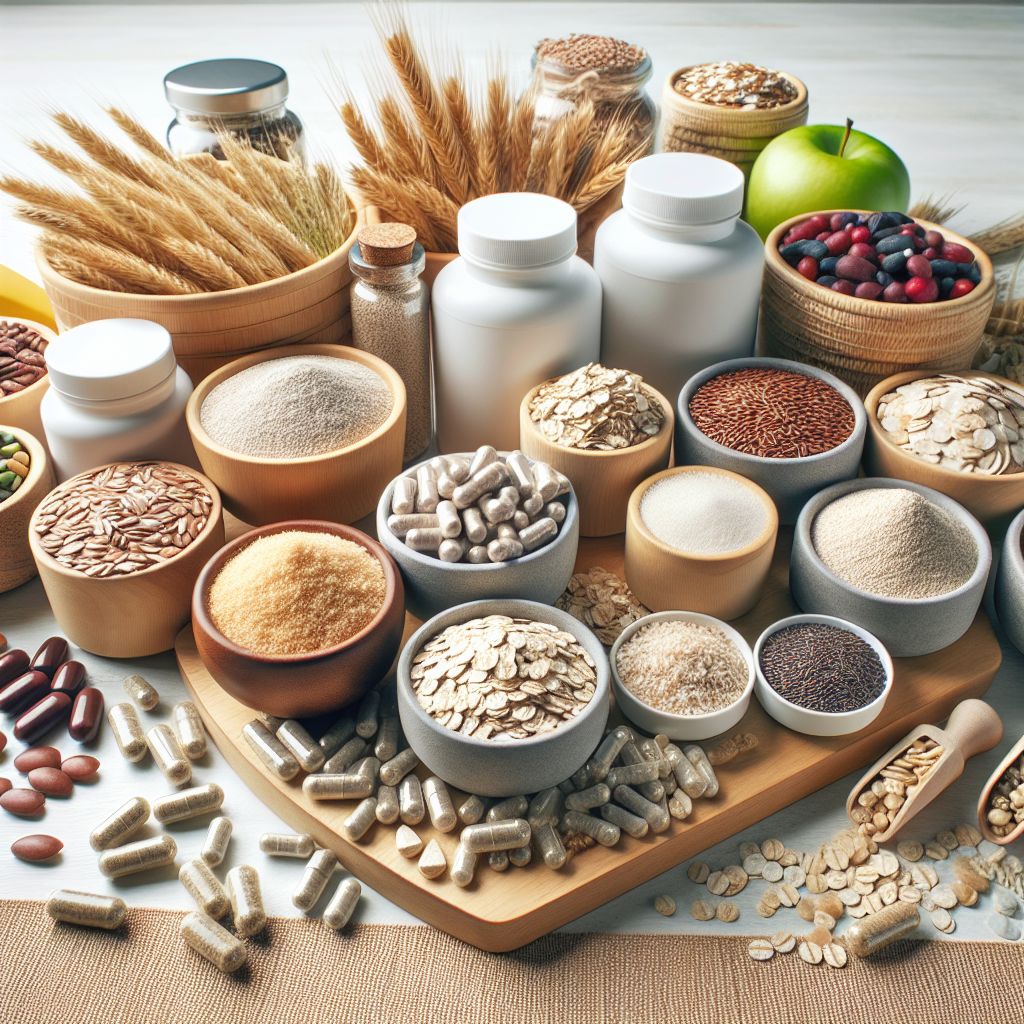Dietary fiber is a crucial component of a balanced diet, yet it often doesn’t receive the attention it deserves in discussions about supplement regimens. While many focus on vitamins, minerals, and other nutrients, fiber plays an indispensable role in maintaining various aspects of our health. This article delves into the intricacies of dietary fiber, its benefits, and how it interacts with other supplements and medications.
Understanding Dietary Fiber
Dietary fiber refers to plant-based carbohydrates that, unlike other carbs, cannot be digested by the human gastrointestinal tract. There are two types of dietary fiber: soluble and insoluble, each with distinct health benefits.
Soluble fiber dissolves in water to form a gel-like substance, which can help lower blood cholesterol and glucose levels. Insoluble fiber, on the other hand, does not dissolve in water and aids in moving material through the digestive system, promoting regular bowel movements and preventing constipation.
Fiber’s Impact on Digestive Health
Dietary fiber is most famously known for its ability to support digestive health. It enhances gut function and is linked to a reduced risk of digestive disorders, such as diverticulitis, hemorrhoids, and irritable bowel syndrome (IBS). The bulking property of insoluble fiber also helps prevent constipation, a common concern that can affect individuals on certain medication regimens.
The Role of Fiber in Chronic Disease Management
Beyond aiding digestion, fiber has been associated with a lower risk of developing chronic diseases. It can help manage blood sugar levels, making it an important dietary consideration for those with diabetes. Additionally, soluble fiber’s role in cholesterol management supports cardiovascular health, potentially reducing the risk of heart disease.
Fiber and Weight Management
Fiber’s ability to promote feelings of fullness can be an asset in weight management strategies. By slowing the movement of food through the digestive tract, high-fiber foods can lead to a more prolonged sensation of satiety, which may help prevent overeating.
Fiber’s Interaction with Medications and Supplements
When incorporating fiber into a diet, it’s important to consider its interactions with medications and supplements. For instance, fiber can bind with certain medications, potentially reducing their absorption and effectiveness. This underscores the need for proper nutrient timing to ensure that fiber consumption does not interfere with the therapeutic actions of prescribed drugs.
Enhancing Supplement Efficacy
Conversely, dietary fiber can sometimes enhance the efficacy of certain supplements. For example, a high-fiber diet has been shown to improve the body’s utilization of antioxidant supplements, which are essential for combating oxidative stress and inflammation.
Recommended Fiber Intake
The American Heart Association suggests an intake of 25 to 30 grams of fiber per day from food, but the average adult only consumes about 15 grams. This gap highlights the importance of either incorporating more high-fiber foods into the diet or considering fiber supplements.
Selecting High-Quality Fiber Supplements
When choosing fiber supplements, it’s crucial to opt for high-quality products that are free from unnecessary additives. It’s also beneficial to look for a blend of both soluble and insoluble fibers to maximize health benefits.
Incorporating Fiber into Your Supplement Regimen
Start Slowly
If you’re new to fiber supplements, start with a small dose and gradually increase to avoid gastrointestinal discomfort, such as bloating and gas.
Stay Hydrated
Increasing fiber intake requires adequate hydration. Water helps soluble fiber dissolve and facilitates the passage of insoluble fiber through the digestive system.
Balance with Other Nutrients
When upping fiber intake, balance it with other essential nutrients, particularly if you’re on a restricted diet or have specific health concerns. For instance, ensuring adequate vitamin D intake is crucial for overall health, particularly bone health.
Consult with Healthcare Providers
Always talk to a healthcare provider before starting any new supplement, including fiber, especially if you’re managing chronic conditions or taking prescription medications.
Fiber-Rich Foods to Consider
While supplements are beneficial, obtaining fiber from whole foods is ideal. Foods rich in fiber include:
- Legumes, such as beans, lentils, and chickpeas
- Whole grains like oatmeal, quinoa, and brown rice
- Fruits such as apples, berries, and oranges
- Vegetables including broccoli, leafy greens, and carrots
- Nuts and seeds
Final Thoughts
Dietary fiber is a vital part of a comprehensive supplement regimen. It offers a multitude of health benefits that extend beyond digestive health, contributing to overall wellness and chronic disease management. When integrating fiber into your diet, whether through foods or supplements, it’s important to do so thoughtfully, considering the timing and interaction with other nutrients and medications. By prioritizing fiber intake, you can take a significant step toward optimizing your health and well-being.
For more detailed guidance on supplement intake and managing your health through diet and lifestyle choices, explore the array of informative articles on Avix Health. From understanding herbal supplement interactions to strategies for enhancing antidepressant efficacy, Avix Health is your resource for trustworthy health and wellness information.



